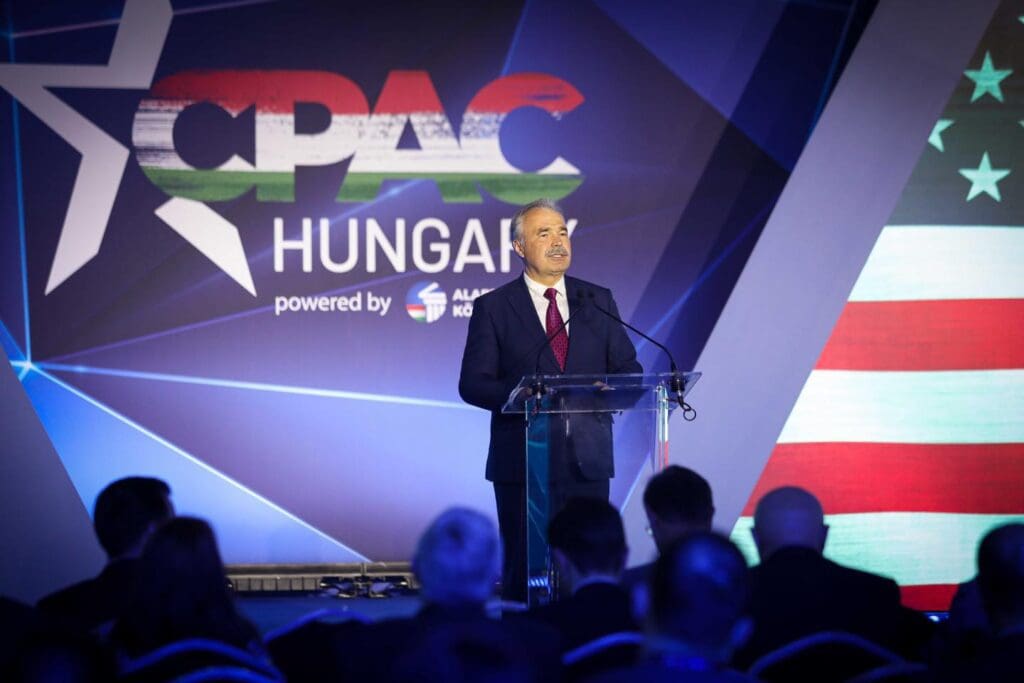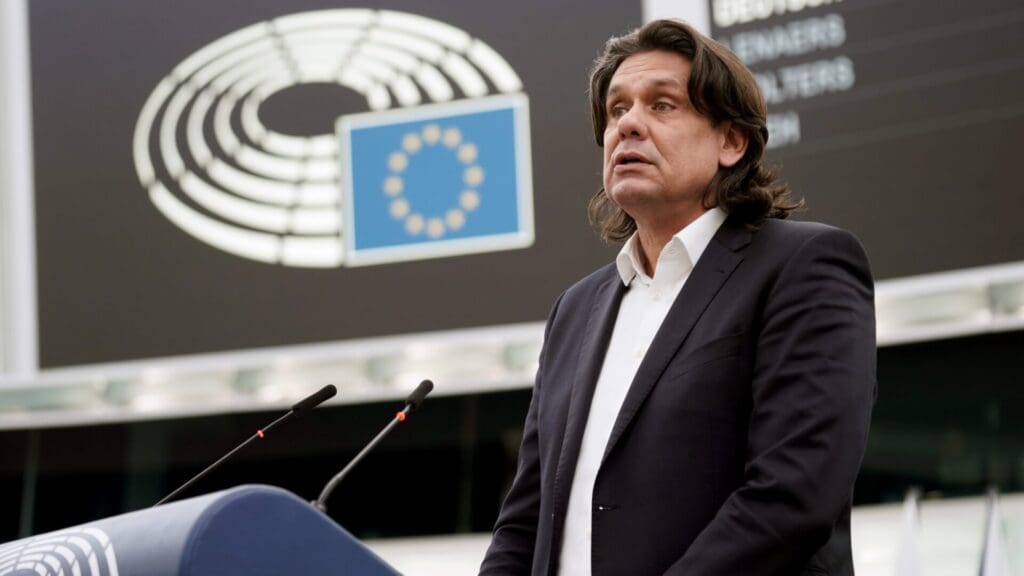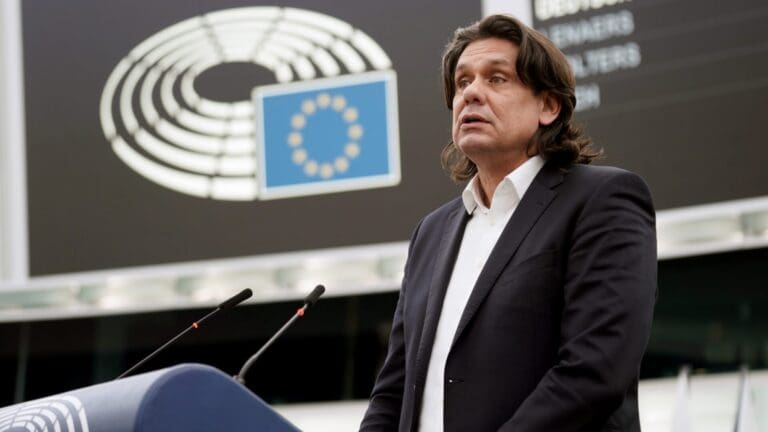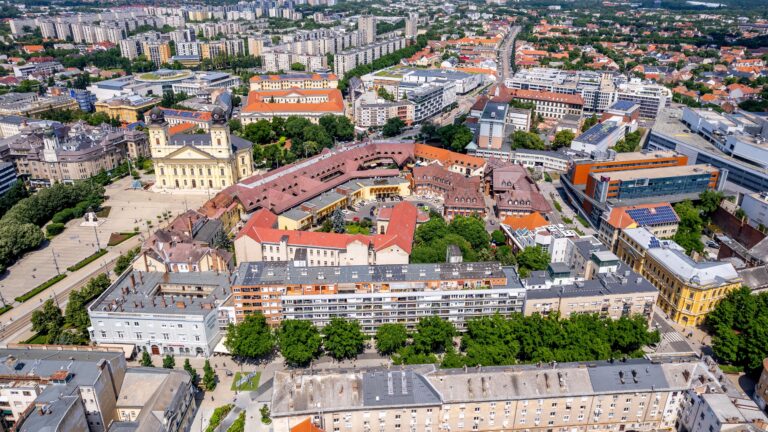CPAC Hungary 2023 returned to the Bálna Budapest centre on Friday, 5 May for its second day of events. Just like on Day 1 of CPAC Hungary, the schedule again featured speakers from all around the globe, the majority of them from either Hungary or the United States. However, we also had guests from Slovenia (none other than former PM Janez Janša), Poland, Spain, and Portugal.
Rick Santorum came from the United States, where he served as a senator in the US Congress, representing the Commonwealth of Pennsylvania for two terms, between 1995 and 2007. He talked about how the American left got to take over the corporate world in the wake of the technological boom in the early 2000s. He also described even more nefarious developments in his home country, that is,
a rising number of single-parent families, brought on by the sexual revolution and radical feminism,
both promoted by the left in the US. Senator Santorum believes that their goal is to destroy the family as we know it.
He also lauded the fact that the Supreme Court ruling that made abortion legal in all 50 states, Roe v Wade in 1973, was overturned just last year. However, he also lamented that Republican candidates ahead of the 2022 midterm elections did not know how to articulate their message about that, and often shied away from the issue.
On the topic of abortion, the Senator told a personal story. In 1997, he spent hours delivering a speech inside an empty Senate chamber, for the outside chance that some of his fellow senators would see it on television. He was trying to convince them to vote in favour of overturning President Clinton’s veto on a bill banning late-term abortion. The vote eventually failed by two votes, and Senator Santorum felt gutted that his efforts, which made him miss a night with his family, were in vain. However, it turned out they may not have been after all. He received an email from a college student, telling him that her girlfriend changed her mind about aborting their baby because of his speech. The Senator told the audience that if they ever feel like their fight for conservative values is failing, they should not despair, since they may very well help someone, ‘you just maybe didn’t get the email’.
After Senator Santorum, Heritage Foundation President Kevin Roberts followed. He praised the ‘historic people’ of Hungary for their continued fight for keeping their language, culture, and identity. He also talked about the West’s external enemies (namely, Russia and China) and internal enemies (the woke ideologues). About the latter, he pointed out that
they are against the family, church, the nation, and private property,
in which way their ideas are identical to the ones in Marx’s Communist Manifesto—something many other speakers also suggested throughout the two-day event series.
CPAC Hungary Speakers on Agriculture, Foreign Affairs
Minister of Agriculture István Nagy of Hungary, who took the stage soon after, urged the foreign guests in attendance to visit Hungary outside the borders of Budapest as well. He then went on to stress the importance of buying agricultural goods from local producers, and the symbolic importance of owning arable land. The minister also highlighted that environmental protection ‘ opening single quote alt 0145 option ‘must become the protection of the Creation.’

One of the most high-profile speakers of the day was Hungary’s Foreign Minister Péter Szijjártó. He touched on more topical issues than the other speakers, talking about a new initiative by nine EU member states, headed by Germany, to do away with the required unanimous vote by the Union states, and only rely on a simple majority to make decisions. Evidently, Minister Szijjártó is strongly against that. He went on to criticise German foreign policy as a whole, calling it erratic; while also levying heavy criticism on Brussels for reportedly planning an 11th sanctions package against Russia, despite the first ten having severely negative effects on Europe’s economy.
However, he also had plenty of positive messages to share with the audience, such as how Hungary has come out of every crisis stronger than it had entered. This holds true to the 2008 financial crisis, after which the new Orbán administration managed to pay back the IMF loan, the migration crisis of 2015, as well as the recent pandemic and its consequent new economic turmoil. On how the country managed to do that, Szijjártó elaborated as such:
‘We have come out of very crises stronger than we had entered. This begs the question: how did we manage to do that? We never took into consideration the dictates of the international liberal mainstream, that’s how. We have never organised our responses to the crises according to the expectations of the international liberal mainstream. We have insisted on our sovereignty in every case, we have given a “Hungarian answer” to each question, and every “Hungarian answer” was made based on Hungarian interests.’








